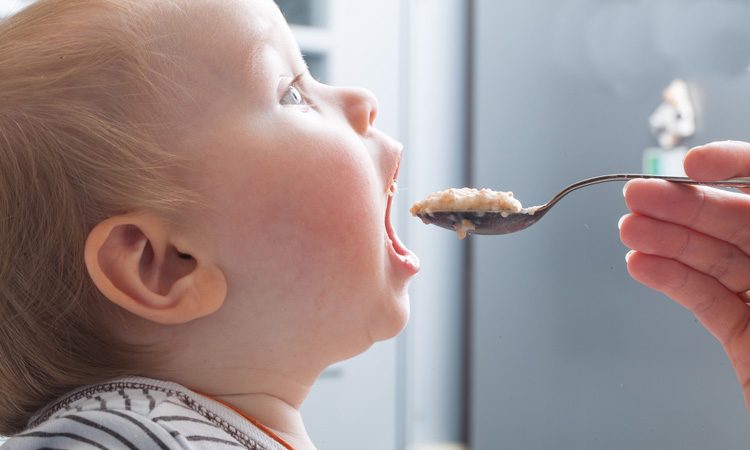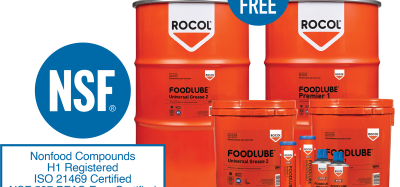Report says 95 percent of tested baby foods contain toxic heavy metals
- Like
- Digg
- Del
- Tumblr
- VKontakte
- Buffer
- Love This
- Odnoklassniki
- Meneame
- Blogger
- Amazon
- Yahoo Mail
- Gmail
- AOL
- Newsvine
- HackerNews
- Evernote
- MySpace
- Mail.ru
- Viadeo
- Line
- Comments
- Yummly
- SMS
- Viber
- Telegram
- Subscribe
- Skype
- Facebook Messenger
- Kakao
- LiveJournal
- Yammer
- Edgar
- Fintel
- Mix
- Instapaper
- Copy Link
Posted: 17 October 2019 | Sam Mehmet (New Food) | No comments yet
Tests of 168 baby foods from major manufacturers found 95 percent contained lead, 73 percent contained arsenic, 75 percent contained cadmium and 32 percent contained mercury.


A test of 168 baby foods, commissioned by Healthy Babies Bright Futures (HBBF), has found toxic heavy metals in 95 percent of containers tested. One in four baby foods contained all four metals assessed by the testing lab – arsenic, lead, cadmium, and mercury.
Even in the trace amounts found in food naturally, the report states that these contaminants can alter the developing brain and affect a child’s IQ.
In 2017, the US Food and Drug Administration (FDA) charged a team of top agency scientists with “reducing exposures… to the greatest extent possible” by prioritising and modernising FDA’s approaches. In early 2019, baby food companies, supported by non-profit organisations, formed Baby Food Council (BFC) that said it is “seeking to reduce heavy metals in the companies’ products to as low as reasonably achievable using best-in-class management practices”.
Since 2011, public health advocates have regularly tested baby foods and educated parents on issues such as arsenic and lead in baby foods and drinks. According to the report, current arsenic contamination levels in rice cereal and juices are 37 and 63 percent lower, respectively, than amounts measured a decade ago. This is assumed to be because of companies’ success in reducing metals levels in their food ingredients in order to comply with draft FDA guidance.
Growing and processing methods have seen changes, as well as a switch to plant varieties and cleaner field sources. Despite this progress, 19 of every 20 baby foods tested in the study had detectable levels of one or more heavy metals, according to new tests detailed in the study report.
The study report outlines that “simple changes” can significantly lower a baby’s exposure to heavy metal contamination, such as parents shopping for safer baby food alternatives such as rice-free snacks, frozen banana and cucumber for teething, multi-grain cereals and oatmeal, tap water and fruits and vegetables. These “safer choices” are said to contain 80 percent less arsenic, lead and other toxic heavy metals, on average, than the riskier picks.
What is new about this study?
Reports of heavy metals in baby food have been undertaken for almost a decade. HBBF’s study is said to advance this work in four ways:
- Quantity of brands tested: 61 brands, from big names to niche brands, were tested, which is more than ever before
- “First-ever” look at IQ loss for babies: A new study that HBBF commissioned from Abt Associates quantifies the health impacts posed by heavy metals in baby food. This work allegedly gives first-ever estimates of the population-wide decline in IQ from children’s exposures to lead and arsenic in food, from birth to 24 months of age
- Streamlined advice for parents to cover foods posing the greatest risk to babies, based on the newly released Abt IQ loss findings
- New data on industrial pollutants and additive risks: Data for the industrial chemical perchlorate in baby food is included in the study. It is said to add to the risk of IQ loss posed by heavy metals, increasing the urgency for actions to lower the levels of neurotoxic contaminants in baby food.
Although many foods were indicated to be contaminated by the study, 15 foods consumed by children under two years of age accounted for 55 percent of the risk to babies’ brains, according to a study commissioned by HBBF and detailed in the report. These include apple and grape juice, oat ring cereal, macaroni and cheese, puff snacks and 10 other foods. But topping the list is rice-based foods – infant rice cereal, rice dishes and rice-based snacks.
These popular baby foods are said to be not only high in inorganic arsenic, the most toxic form of arsenic, but also are nearly always contaminated with all four toxic metals. The study, by Abt associates, estimates that lead and arsenic in rice-based foods account for one-fifth of the more than 11 million IQ points children lose from birth to 24 months of age from all dietary sources.
Baby food standards
The study report highlights that a number of baby food companies are setting their own standards in the absence of enforceable federal limits or guidance. As these initiatives advance, packaged baby foods may be increasingly likely to have lower amounts of heavy metals than homemade varieties, the report states.
To reduce arsenic levels, solutions suggested by FDA, and other experts, include sourcing rice from fields with lower arsenic levels in soil, growing it with natural soil additives that reduce arsenic uptake by the roots, growing rice strains less prone to arsenic uptake, altering irrigation practices, preparing rice with excess water that is poured off, and blending it with lower arsenic grains in multi-grain products.
The report urges baby food standards to establish and finalise health-protective standards for heavy metals, prioritising foods that offer the greatest opportunity to reduce exposure, considering additive effects of the multiple metals detected in foods, and explicitly protecting against neurodevelopmental impacts. Proactive testing programmes for heavy metals in foods consumed by babies and toddlers are detailed to be an option, similar to the Consumer Product Safety Commission’s programme for children’s toys.
Related topics
Food Safety, Health & Nutrition, Natural, Research & development, The consumer









